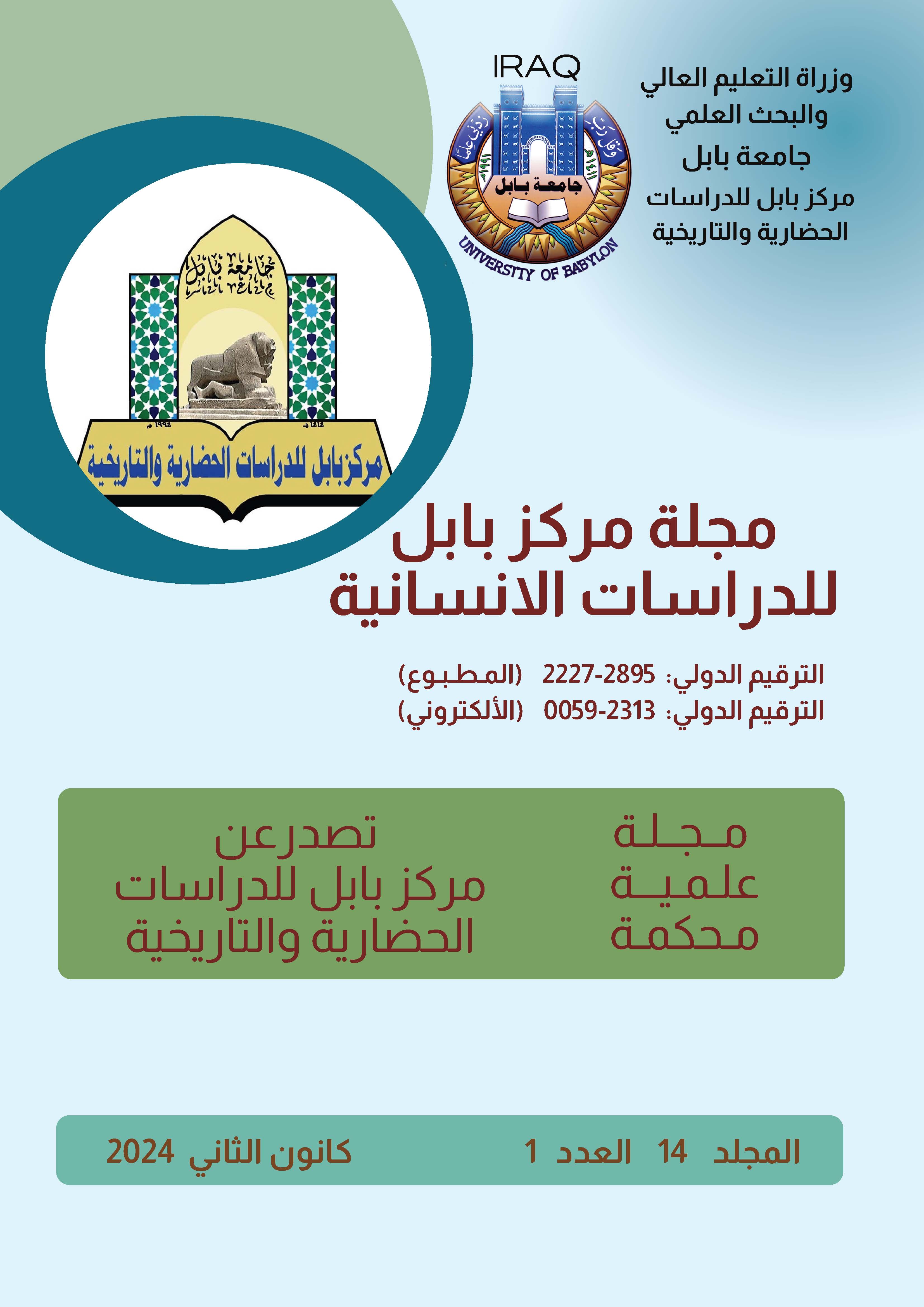التأشير الاجتماعي في الصحيفة السجادية دراسة تداولية
الكلمات المفتاحية:
الإشاريات,السجاد, التداولية, الإجتماعيةالملخص
تهتم التداولية بالعلاقات الإجتماعية بين المتكلمين ضمن العملية التواصلية بين طرفين, كما تهتم بدراسة المسافة الإجتماعية بينهما, من حيث القرب والبعد وبيان درجة العلاقة الإجتماعية كما تهتم بدراسة درجات الود والتحبب التي لها الأثر الكبير في الكشف عن مدى التأدب والسلوك العاطفي بين الطرفين لإنتاج الخطاب في العملية التواصلية, وتهتم التداولية في دراسة اللغة من حيث الإستعمال, وبطبيعة الحال فإن المجتمع لابد من علاقات إما أن تكون على درجة عالية من القرابة, أو درجات أدنى من ذلك, وتكون هذه العلاقات لها دورا بارزا في انتاج العملية التواصلية المنتجة لذلك الخطاب, فهذه العلاقات الإجتماعية مؤثرة في بيان خصائص السياق ودلالته من حيث قرب المسافة وبعدها, ومن هنا تظهر وتتبلور استراتيجية تعبرعن قصدية المتكلم, ومن هنا تبرز علاقة المتخاطبين داخل السياق الذي وردت فيه وخارجه أي ما يعرفه المتلقي عن الآخر, وما يعرفه المتحدثان عن المقام من حيث قرب المسافة وبعدها, وما يريدان الحديث عنه سواء كان من المتكلم والمتلقي, فهذه المعرفة لمشتركة تساعد في انتاج العملية التواصلية بدرجاتها المختلفة, ويسعى المرسل إلى إيجاد مستويات درجة هذه العلاقة.
وتعد الصحيفة السجادية كنزا من المعارف الأخلاقية والتربوية والاجتماعية, حيث لجأ الإمام السجاد إلى توظيف تلك العلاقات الإجتماعية في أسلوب تربوي وأخلاقي وعاطفي, وتعبدي يرتكز في كل مفاهيمه على القرآن والسنة النبوية الشريفة وما يحمل من تراث ورثه عن آبائه وعلمهم بالقرآن والسنة من توظيف العناصر الإشارية, التي تشير إلى الوالدين وأهميتها في القرآن والسنة ووجوب الإحسان اليهما , وبرهما وشكرهما.
ولجأ الإمام السجاد إلى توظيف تلك الإشاريات الإجتماعية( الأبوين, الوالدان, ولده, جيرانه, أقاربه, أرحامه), وهنا تتجلى مرتبة تلك العلاقات, فمنها ما تكون في منزلة تصاعدية, من حيث قرب المسافة ودرجتها بين المرسل والمرسل إليه, أو المتكلم والمتلقي, فالعلاقة تتجلى من خلال السياق الذي وردت فيه درجتها الرسمية أو غير الرسمية., فالبحث التداولي صنف العلاقات الإجتماعية بين المتكلمين أو المتحاورين إلى قسمين:
العلاقات الرسمية والعلاقات غير الرسمية:
العلاقات الإجتماعية الرسمية: وهي علاقات لها منزلتها ودرجتها تبعا للمتكلمين والمخاطبين وتتسم بالتوقير والتعظيم والتبجيل, وهي تختص بالملوك, والامراء, والرؤساء, مثل : جلالة الملك, وسيادة الرئيس, وفخامة الأمير وهي مفعمة بصيغ الاحترام والتقدير والتوقير وكذلك لمن هم أكبر سنا,. علاقات غير رسمية تتسم بعلاقة المودة والعاطفة بين الرجل وصديقة والمرآة وزوجها وكذلك التحيات, والسلام, بين الناس. وفي هذا البحث نحاول أن نرصد الإشاريات الإجتماعية التي وردت في أدعية الإمام السجاد التي اختصت للأبوين, أو إلى اولاده, وجيرانه وأقاربه.







